#a market for lemons
Explore tagged Tumblr posts
Text
Greenwashing set Canada on fire

On September 22, I'm (virtually) presenting at the DIG Festival in Modena, Italy. On September 27, I'll be at Chevalier's Books in Los Angeles with Brian Merchant for a joint launch for my new book The Internet Con and his new book, Blood in the Machine.

As a teenager growing up in Ontario, I always envied the kids who spent their summers tree planting; they'd come back from the bush in September, insect-chewed and leathery, with new muscle, incredible stories, thousands of dollars, and a glow imparted by the knowledge that they'd made a new forest with their own blistered hands.
I was too unathletic to follow them into the bush, but I spent my summers doing my bit, ringing doorbells for Greenpeace to get my neighbours fired up about the Canadian pulp-and-paper industry, which wasn't merely clear-cutting our old-growth forests – it was also poisoning the Great Lakes system with PCBs, threatening us all.
At the time, I thought of tree-planting as a small victory – sure, our homegrown, rapacious, extractive industry was able to pollute with impunity, but at least the government had reined them in on forests, forcing them to pay my pals to spend their summers replacing the forests they'd fed into their mills.
I was wrong. Last summer's Canadian wildfires blanketed the whole east coast and midwest in choking smoke as millions of trees burned and millions of tons of CO2 were sent into the atmosphere. Those wildfires weren't just an effect of the climate emergency: they were made far worse by all those trees planted by my pals in the eighties and nineties.
Writing in the New York Times, novelist Claire Cameron describes her own teen years working in the bush, planting row after row of black spruces, precisely spaced at six-foot intervals:
https://www.nytimes.com/2023/09/15/opinion/wildfires-treeplanting-timebomb.html
Cameron's summer job was funded by the logging industry, whose self-pegulated, self-assigned "penalty" for clearcutting diverse forests of spruce, pine and aspen was to pay teenagers to create a tree farm, at nine cents per sapling (minus camp costs).
Black spruces are made to burn, filled with flammable sap and equipped with resin-filled cones that rely on fire, only opening and dropping seeds when they're heated. They're so flammable that firefighters call them "gas on a stick."
Cameron and her friends planted under brutal conditions: working long hours in blowlamp heat and dripping wet bulb humidity, amidst clouds of stinging insects, fingers blistered and muscles aching. But when they hit rock bottom and were ready to quit, they'd encourage one another with a rallying cry: "Let's go make a forest!"
Planting neat rows of black spruces was great for the logging industry: the even spacing guaranteed that when the trees matured, they could be easily reaped, with ample space between each near-identical tree for massive shears to operate. But that same monocropped, evenly spaced "forest" was also optimized to burn.
It burned.
The climate emergency's frequent droughts turn black spruces into "something closer to a blowtorch." The "pines in lines" approach to reforesting was an act of sabotage, not remediation. Black spruces are thirsty, and they absorb the water that moss needs to thrive, producing "kindling in the place of fire retardant."
Cameron's column concludes with this heartbreaking line: "Now when I think of that summer, I don’t think that I was planting trees at all. I was planting thousands of blowtorches a day."
The logging industry committed a triple crime. First, they stole our old-growth forests. Next, they (literally) planted a time-bomb across Ontario's north. Finally, they stole the idealism of people who genuinely cared about the environment. They taught a generation that resistance is futile, that anything you do to make a better future is a scam, and you're a sucker for falling for it. They planted nihilism with every tree.
That scam never ended. Today, we're sold carbon offsets, a modern Papal indulgence. We are told that if we pay the finance sector, they can absolve us for our climate sins. Carbon offsets are a scam, a market for lemons. The "offset" you buy might be a generated by a fake charity like the Nature Conservancy, who use well-intentioned donations to buy up wildlife reserves that can't be logged, which are then converted into carbon credits by promising not to log them:
https://pluralistic.net/2020/12/12/fairy-use-tale/#greenwashing
The credit-card company that promises to plant trees every time you use your card? They combine false promises, deceptive advertising, and legal threats against critics to convince you that you're saving the planet by shopping:
https://pluralistic.net/2021/11/17/do-well-do-good-do-nothing/#greenwashing
The carbon offset world is full of scams. The carbon offset that made the thing you bought into a "net zero" product? It might be a forest that already burned:
https://pluralistic.net/2022/03/11/a-market-for-flaming-lemons/#money-for-nothing
The only reason we have carbon offsets is that market cultists have spent forty years convincing us that actual regulation is impossible. In the neoliberal learned helplessness mind-palace, there's no way to simply say, "You may not log old-growth forests." Rather, we have to say, "We will 'align your incentives' by making you replace those forests."
The Climate Ad Project's "Murder Offsets" video deftly punctures this bubble. In it, a detective points his finger at the man who committed the locked-room murder in the isolated mansion. The murderer cheerfully admits that he did it, but produces a "murder offset," which allowed him to pay someone else not to commit a murder, using market-based price-discovery mechanisms to put a dollar-figure on the true worth of a murder, which he duly paid, making his kill absolutely fine:
https://pluralistic.net/2021/04/14/for-sale-green-indulgences/#killer-analogy
What's the alternative to murder offsets/carbon credits? We could ask our expert regulators to decide which carbon intensive activities are necessary and which ones aren't, and ban the unnecessary ones. We could ask those regulators to devise remediation programs that actually work. After all, there are plenty of forests that have already been clearcut, plenty that have burned. It would be nice to know how we can plant new forests there that aren't "thousands of blowtorches."
If that sounds implausible to you, then you've gotten trapped in the neoliberal mind-palace.
The term "regulatory capture" was popularized by far-right Chicago School economists who were promoting "public choice theory." In their telling, regulatory capture is inevitable, because companies will spend whatever it takes to get the government to pass laws making what they do legal, and making competing with them into a crime:
https://pluralistic.net/2022/06/13/public-choice/#ajit-pai-still-terrible
This is true, as far as it goes. Capitalists hate capitalism, and if an "entrepreneur" can make it illegal to compete with him, he will. But while this is a reasonable starting-point, the place that Public Choice Theory weirdos get to next is bonkers. They say that since corporations will always seek to capture their regulators, we should abolish regulators.
They say that it's impossible for good regulations to exist, and therefore the only regulation that is even possible is to let businesses do whatever they want and wait for the invisible hand to sweep away the bad companies. Rather than creating hand-washing rules for restaurant kitchens, we should let restaurateurs decide whether it's economically rational to make us shit ourselves to death. The ones that choose poorly will get bad online reviews and people will "vote with their dollars" for the good restaurants.
And if the online review site decides to sell "reputation management" to restaurants that get bad reviews? Well, soon the public will learn that the review site can't be trusted and they'll take their business elsewhere. No regulation needed! Unleash the innovators! Set the job-creators free!
This is the Ur-nihilism from which all the other nihilism springs. It contends that the regulations we have – the ones that keep our buildings from falling down on our heads, that keep our groceries from poisoning us, that keep our cars from exploding on impact – are either illusory, or perhaps the forgotten art of a lost civilization. Making good regulations is like embalming Pharaohs, something the ancients practiced in mist-shrouded, unrecoverable antiquity – and that may not have happened at all.
Regulation is corruptible, but it need not be corrupt. Regulation, like science, is a process of neutrally adjudicated, adversarial peer-review. In a robust regulatory process, multiple parties respond to a fact-intensive question – "what alloys and other properties make a reinforced steel joist structurally sound?" – with a mix of robust evidence and self-serving bullshit and then proceed to sort the two by pantsing each other, pointing out one another's lies.
The regulator, an independent expert with no conflicts of interest, sorts through the claims and counterclaims and makes a rule, showing their workings and leaving the door open to revisiting the rule based on new evidence or challenges to the evidence presented.
But when an industry becomes concentrated, it becomes unregulatable. 100 small and medium-sized companies will squabble. They'll struggle to come up with a common lie. There will always be defectors in their midst. Their conduct will be legible to external experts, who will be able to spot the self-serving BS.
But let that industry dwindle to a handful of giant companies, let them shrink to a number that will fit around a boardroom table, and they will sit down at a table and agree on a cozy arrangement that fucks us all over to their benefit. They will become so inbred that the only people who understand how they work will be their own insiders, and so top regulators will be drawn from their own number and be hopelessly conflicted.
When the corporate sector takes over, regulatory capture is inevitable. But corporate takeover isn't inevitable. We can – and have, and will again – fight corporate power, with antitrust law, with unions, and with consumer rights groups. Knowing things is possible. It simply requires that we keep the entities that profit by our confusion poor and thus weak.
The thing is, corporations don't always lie about regulations. Take the fight over working encryption, which – once again – the UK government is trying to ban:
https://www.theguardian.com/technology/2023/feb/24/signal-app-warns-it-will-quit-uk-if-law-weakens-end-to-end-encryption
Advocates for criminalising working encryption insist that the claims that this is impossible are the same kind of self-serving nonsense as claims that banning clearcutting of old-growth forests is impossible:
https://twitter.com/JimBethell/status/1699339739042599276
They say that when technologists say, "We can't make an encryption system that keeps bad guys out but lets good guys in," that they are being lazy and unimaginative. "I have faith in you geeks," they said. "Go nerd harder! You'll figure it out."
Google and Apple and Meta say that selectively breakable encryption is impossible. But they also claim that a bunch of eminently possible things are impossible. Apple claims that it's impossible to have a secure device where you get to decide which software you want to use and where publishers aren't deprive of 30 cents on every dollar you spend. Google says it's impossible to search the web without being comprehensively, nonconsensually spied upon from asshole to appetite. Meta insists that it's impossible to have digital social relationship without having your friendships surveilled and commodified.
While they're not lying about encryption, they are lying about these other things, and sorting out the lies from the truth is the job of regulators, but that job is nearly impossible thanks to the fact that everyone who runs a large online service tells the same lies – and the regulators themselves are alumni of the industry's upper eschelons.
Logging companies know a lot about forests. When we ask, "What is the best way to remediate our forests," the companies may well have useful things to say. But those useful things will be mixed with actively harmful lies. The carefully cultivated incompetence of our regulators means that they can't tell the difference.
Conspiratorialism is characterized as a problem of what people believe, but the true roots of conspiracy belief isn't what we believe, it's how we decide what to believe. It's not beliefs, it's epistemology.
Because most of us aren't qualified to sort good reforesting programs from bad ones. And even if we are, we're probably not also well-versed enough in cryptography to sort credible claims about encryption from wishful thinking. And even if we're capable of making that determination, we're not experts in food hygiene or structural engineering.
Daily life in the 21st century means resolving a thousand life-or-death technical questions every day. Our regulators – corrupted by literally out-of-control corporations – are no longer reliable sources of ground truth on these questions. The resulting epistemological chaos is a cancer that gnaws away at our resolve to do anything about it. It is a festering pool where nihilism outbreaks are incubated.
The liberal response to conspiratorialism is mockery. In her new book Doppelganger, Naomi Klein tells of how right-wing surveillance fearmongering about QR-code "vaccine passports" was dismissed with a glib, "Wait until they hear about cellphones!"
https://pluralistic.net/2023/09/05/not-that-naomi/#if-the-naomi-be-klein-youre-doing-just-fine
But as Klein points out, it's not good that our cellphones invade our privacy in the way that right-wing conspiracists thought that vaccine passports might. The nihilism of liberalism – which insists that things can't be changed except through market "solutions" – leads us to despair.
By contrast, leftism – a muscular belief in democratic, publicly run planning and action – offers a tonic to nihilism. We don't have to let logging companies decide whether a forest can be cut, or what should be planted when it is. We can have nice things. The art of finding out what's true or prudent didn't die with the Reagan Revolution (or the discount Canadian version, the Mulroney Malaise). The truth is knowable. Doing stuff is possible. Things don't have to be on fire.



If you'd like an essay-formatted version of this post to read or share, here's a link to it on pluralistic.net, my surveillance-free, ad-free, tracker-free blog:
https://pluralistic.net/2023/09/16/murder-offsets/#pulped-and-papered
#pluralistic#logging#pulp and paper#ontario#greenwashing#a market for lemons#incentives matter#capitalism#late-stage capitalism#climate emergency#wildfires#canada#canpoli#ontpoli#carbon offsets#self-regulation#nerd harder#epistemological chaos#regulatory capture#Claire Cameron#pines in lines
3K notes
·
View notes
Text
So why do new hospitals have to justify their existence with Certificates of Need?
A number of factors spurred states to require CONs in the healthcare industry. Chief among these was the concern that the construction of excess hospital capacity would cause competitors in an oversaturated field to cover the costs of a diluted patient pool by overcharging, or by convincing patients to accept hospitalization unnecessarily
can we just burn the entire healthcare industry to the ground and start from scratch?
273 notes
·
View notes
Text

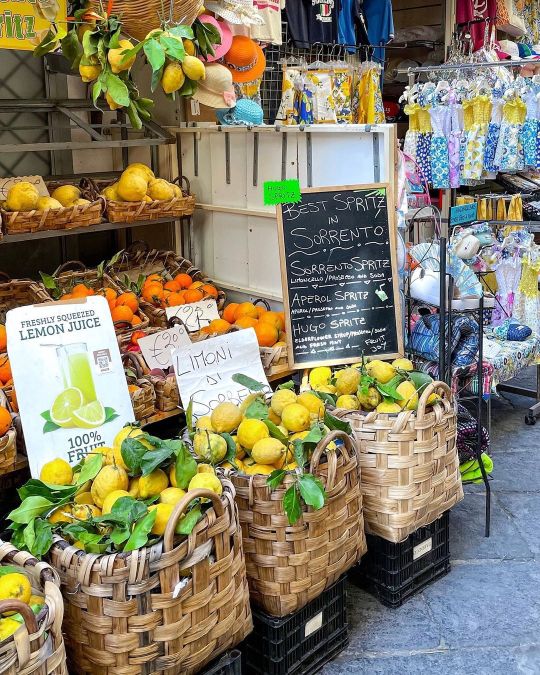
by eleni_tsalki
2K notes
·
View notes
Text



Pins for an Art Expo!! :))
107 notes
·
View notes
Text
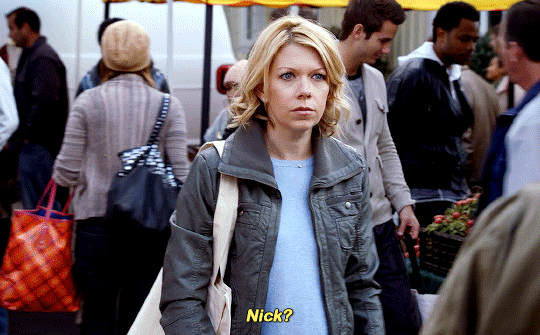
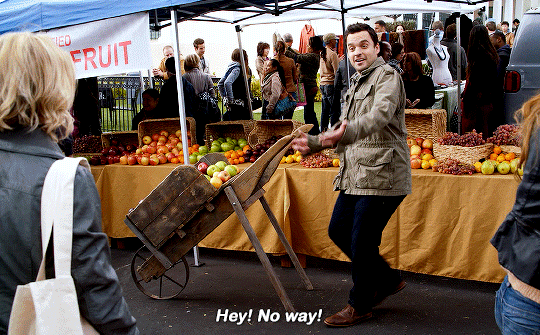

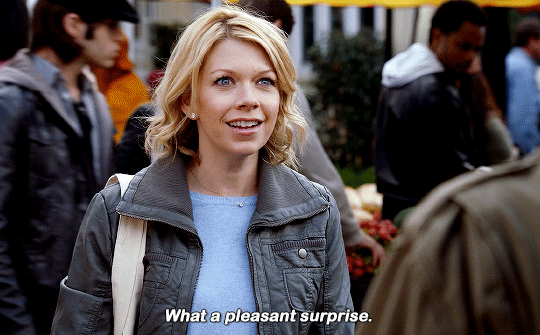
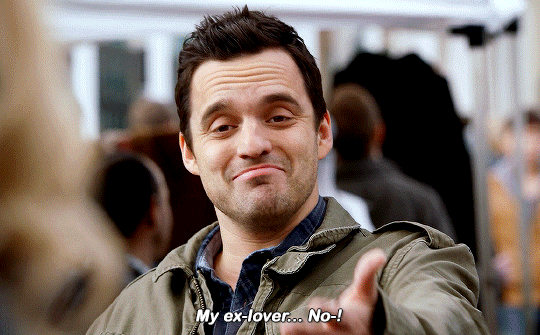
I don't deal with exes. They're part of the past. You burn 'em swiftly and you give their ashes to Poseiden. NEW GIRL | 2014 Exes |3.15
#new girl#newgirledit#tvedit#sitcomedit#jake johnson#ours#farmers market fruit#by lemon#henricavyll#userdiana#userkd#underbetelgeuse
415 notes
·
View notes
Text
joe ja’marr and tee’s entire thing with tee’s contract and agent change and possibly sounding off each other’s contracts and using each other as leverage for their extension is like when all three of them went bald in succession but on high end expensive drugs. do you get me.
#never have i seen three men giving such big three teenage girls doing everything together including piercing their ears with a lemon#and a nail in the back of the bleachers for matching piercings they unknowingly bought off of the local black market energy#do you get me#joe burrow#ja'marr chase#tee higgins#outstanding#hope whatever it is they're gunning for works out#I'm just honestly going along the ride now because what the hell.
70 notes
·
View notes
Text
I stayed up hours later than usual with the femslash TOS!Spirk fic, finishing up S'paak and Jessica's first meeting! So I had fun writing a scene in which S'paak makes a number of objective empirical observations and is 100% logical:
San Francisco was no Shi’Kahr, of course, but it was often sunny, and the day of the Enterprise’s command transfer proved no different. As she followed Captain Pike and Number One from their appointed meeting place at headquarters towards a crowd gathered near the ship, S’paak could feel the clear, light warmth of Sol on her skin. A pleasant sensation, to be sure, all the more in conjunction with the lavishly oxygenated air of Earth and the olfactory evidence of its abundant plant life. A eucalyptus tree must be nearby. She focused her attention on the crowd, which included randomly selected members of the crew, but also three small human boys attached to two strangers, a man and a woman. The man carried one of the children, while the other two held the hands of the unknown woman, presumably their mother. All five stood near several full admirals among other, more unfamiliar, Starfleet officers of lesser rank. And one of the admirals, a man whom S’paak quickly recognized as Admiral Jilani, was talking to a young woman in the gold of command—a woman whom a logical process of elimination indicated could only be Captain Kirk herself. As a result of the conversation with Jilani, Kirk had turned herself somewhat away from Pike’s party, only part of her profile visible, and that from a distance. Now and then, others from the crowd passed by and obscured her altogether, making observation more difficult. S’paak could see that the captain was rather pale, but with a warmer tone to her skin than S’paak’s or even Amanda’s. And like most other women already on the Enterprise, Captain Kirk’s hair was pragmatically pinned up on the back of her head. S’paak had found it a duller color in the captain’s small personnel photograph, only just blonde rather than brown, but in the full light of her native star, it was a surprising rich gold. Little else about her could be observed at this range, except that Kirk had very correct posture and had locked her hands behind her back as she spoke with Admiral Jilani.
Captain Pike paused for a moment, taking in the crowd, then continued walking forwards with Number One and S’paak close behind him. Multiple members of the other party now noticed them, waving their hands and calling out in a manner that would have been wildly disrespectful on Vulcan. S’paak had long since learned that humans meant no more than friendly welcome by it, often admiring in its own way, though she couldn’t imagine conducting herself in that fashion. Even her mother did not. In any case, the woman S’paak presumed to be Captain Kirk did not join the flamboyant gestures, though she turned in their direction and strode forward with the admirals.
As they drew near, S’paak could see that Captain Kirk’s height must be multiple inches less than her own, though Kirk was not remarkably short. S’paak had not anticipated that from the paragon described to her. Otherwise, the captain looked strong enough by the standards of full-blooded humans, and no doubt was. The visible slope of her legs from hemline to boots was smoothly muscled, and the solid set of her shoulders and shape of her arms did suggest a woman as youthful and athletic as described.
But her strength must be of an entirely different form than S’paak’s, even apart from the differences of species. S’paak had always been lean, a woman of hard lines and prominent bones. Captain Kirk, though, was soft—at least, softer than expected, particularly along the pronounced curves of her hips and breasts. Given the standard Starfleet uniform that she wore, there could be little probability of error. The open circular collar and impractically short skirts of their uniforms did not leave much to guesswork.
By the time they arrived, S’paak had politely lifted her gaze to Captain Kirk’s face, curious about the demeanor of the woman who would command her. The captain’s face surprised her almost as much as Kirk’s entirely normative height and build, but for a different reason: she was pretty. Not that this had any bearing on her capabilities as S’paak’s commanding officer, of course, but S’paak hadn’t imagined that the features of a decorated captain described as a brutal combatant would be quite so aesthetically pleasing, least of all in such a glossy, fine-boned, regular fashion.
“Chris!” said an admiral S’paak didn’t recognize, smiling and clapping Pike on the shoulder. “It’s good to see you. I don’t think you’ve met Jessica Kirk yet?”
“I haven’t had that honor,” Captain Pike said cheerfully.
Captain Kirk laughed. In a clear, mid-range voice, she said, “The honor’s all mine, fleet captain.”
“It’s Chris,” said Captain Pike, reaching out a hand without hesitation.
Captain Kirk shook it without reservation or appearance of uncommon attachment. S’paak reminded herself that this, too, was typical behavior.
“Jess,” she replied.
Once his hand was free, Pike gestured at the gleaming Enterprise. “The refits should be done. What do you think of your ship, Jess?”
Captain Kirk turned, one hand shielding her eyes. In a softer voice, she said,
“She’s the most beautiful thing I’ve ever seen.”
#love to see s'paak having a normal one#the enemy within scene is going to be hilarious. she takes one look at jessica's abs and nearly combusts on the spot#also glad i lived in the bay area for two years so i could feel comfortable writing star trek lesbian fanfic occurring there :D#ajkfdakj just imagining writing post-mission fic in which they go to the oakland farmer's market and get handcrafted lemon-infused noodles#anghraine babbles#long post#fic talk#fic talk: the lesbian spock agenda#(finally earning the tag :P)#star peace#genderbending#s'paak#jessica kirk#christopher pike#otp: the premise#c: i object to intellect without discipline#c: who do i have to be#star trek: the original series#spock#james t kirk
29 notes
·
View notes
Text

Marketland!
(with added @ricochete29 & @irbcallmefynn)
#she sells her old trinkets at the local sleazy flea market#my art#furry#anthro#small artist#artists on tumblr#art#oc:emmie#oc: emmie#anthro dragon#dragon#lemon demon#view monster
40 notes
·
View notes
Text



Farmers Market
#photographers on tumblr#photography#landscape#nature#florida#southern gothic#rural america#preachers daughter#farm#farmers market#fruits#apples#lemons#tomatoes
16 notes
·
View notes
Text

Fruit-Seller in Dakar, 1971. Photographer Harrison Forman.
#fruit#lemon#street market#dakar#senegal#street scene#west africa#west african#africa#1970s#1970s photography#lemons
7 notes
·
View notes
Text
with the amount of shit Hiroshi manages to put out under his brother's name, part of me is hoping that hide is waiting for him in the fucking afterlife with a bat full of Nails
#hide#I will continue to scream it but this mf cannot market his brother right#and is like that clip of Mr. Krabs that's like ''Am I really going to desecrate this grave for money? Of course I am!''#If Hiroshi wasn't so keen on putting hide through ai or selling images of him as fucking NFTs#I would be open to supporting the Lemoned store more#alas this motherfucker wakes up in the morning and decides that he's going to sell a wooden fork with hide's name on it for $30#the things I never scream about outside of the two servers I'm in because people would want to strangle me
8 notes
·
View notes
Text
The health industry’s invisible hand is a fist

On June 21, I'm doing an ONLINE READING for the LOCUS AWARDS at 16hPT. On June 22, I'll be in OAKLAND, CA for a panel and a keynote at the LOCUS AWARDS.

The US has the rich world's most expensive health care system, and that system delivers the worst health outcomes of any country in the rich world. Also, the US is unique in relying on market forces as the primary regulator of its health care system. All of these facts are related!
Capitalism's most dogmatic zealots have a mystical belief in the power of markets to "efficiently allocate" goods and services. For them, the process by which goods and services are offered and purchased performs a kind of vast, distributed computation that "discovers the price" of everything. Our decisions to accept or refuse prices are the data that feeds this distributed computer, and the signals these decisions send about our desires triggers investment decisions by sellers, which guides the whole system to "equilibrium" in which we are all better off.
There's some truth to this: when demand for something exceeds the supply, prices tend to go up. These higher prices tempt new sellers into the market, until demand is met and prices fall and production is stabilized at the level that meets demand.
But this elegant, self-regulating system rarely survives contact with reality. It's the kind of simplified model that works when we're hypothesizing about perfectly spherical cows of uniform density on a frictionless surface, but ceases to be useful when it encounters a messy world of imperfect rationality, imperfect information, monopolization, regulatory capture, and other unavoidable properties of reality.
For members of the "efficient market" cult, reality's stubborn refusal to behave the way it does in their thought experiments is a personal affront. Panged by cognitive dissonance, the cult members insist that any market failures in the real world are illusions caused by not doing capitalism hard enough. When deregulation and markets fail, the answer is always more deregulation and more markets.
That's the story of the American health industry in a nutshell. Rather than accepting that people won't shop for the best emergency room while unconscious in an ambulance, or that the "clearing price" of "not dying of cancer" is "infinity," the cult insists that America's worst-in-class, most expensive health system just needs more capitalism to turn it into a world leader.
In the 1980s, Reagan's court sorcerers decreed that they could fix health care with something called "Prospective Payment Systems," which would pay hospitals a lump sum for treating conditions, rather than reimbursing them for each procedure, using competition and profit motives to drive "efficiency." The hospital system responded by "upcoding' patients: if you showed up with a broken leg and a history of coronary disease, they would code you as a heart patient and someone who needed a cast. They'd collect both lump sums, slap a cast on you, and wheel you out the door:
https://www.ncbi.nlm.nih.gov/pmc/articles/PMC4195137/
As Robert Kuttner writes for The American Prospect, this kind of abuse was predictable from the outset, especially since Health and Human Services is starved of budget for auditors and can only hand out "slaps on the wrist" when they catch a hospital ripping off the system:
https://prospect.org/economy/2024-06-13-fantasyland-general/
Upcoding isn't limited to Medicare fraud, either. Hospitals and insurers are locked in a death-battle over payments, and hospitals' favorite scam is sending everyone to the ER, even when they don't have emergencies (some hospitals literally lock all the doors except for the ER entrance). That way, a normal, uncomplicated childbirth can be transformed into a "Level 5" emergency treatment (the highest severity of emergency) and generate a surprise bill of over $2,700:
https://pluralistic.net/2021/10/27/crossing-a-line/#zero-fucks-given
The US health industry is bad enough to generate a constant degree of political will for change, but the industry (and its captured politicians and regulators) is also canny enough to dream up an endless procession of useless gimmicks designed to temporarily bleed off the pressure for change. In 2018, HHS passed a rule requiring hospitals to publish their prices.
Hospitals responded to this with a shrewd gambit: they simply ignored the rule. So in 2021, HHS made another rule, creating penalties for ignoring the first rule:
https://www.cms.gov/priorities/key-initiatives/hospital-price-transparency/hospitals
The theory here was that publishing prices would create "market discipline." Again, this isn't wholly nonsensical. To the extent that patients have nonurgent conditions and the free time to shop around, being able to access prices will help them. Indeed, if the prices are in a standards-defined, machine-readable form, patients and their advocates could automatically import them, create price-comparison sites, leaderboards, etc. None of this addresses the core problem that health-care is a) a human right and b) not a discretionary expense, but it could help at the margins.
But there's another wrinkle here. The same people who claim that prices can solve all of our problems also insist that monopolies are impossible. They've presided over a decades-long assault on antitrust law that has seen hospitals, pharma companies, insurers, and a menagerie of obscure middlemen merge into gigantic companies that are too big to fail and too big to jail. When a single hospital system is responsible for the majority of care in a city or even a county, how much punishment can regulators realistically subject it to?
Not much, as it turns out. Kuttner describes how Mass Gen Brigham cornered the market on health-care in Boston, allowing it to flout the rules on pricing. In addition to standard tricks – like charging self-pay patients vastly more than insured payments (because individuals don't have the bargaining power of insurers), Mass Gen Brigham's price data is a sick joke.
See for yourself! The portal will send you giant, unstructured, ZIPped text files filled with cryptic garbage like:
ADJUSTABLE C TAPER NECK PLUS|1|UNITED HEALTHCARE [1016]|HB CH UNITED HMO / PPO / INDEMNITY [34]|UNITED HEALTHCARE HMO [101604]|75|Inv Loc: 1004203; from OR location 1004203|52.02|Inpatient PAF; 69.36% Billed|75|Inv Loc: 1004203; from OR location 1004203|56.87|Outpatient PAF; 75.83% Billed
https://www.massgeneralbrigham.org/en/patient-care/patient-visitor-information/billing/cms-required-hospital-charge-data
These files have tens of thousands of rows. As a patient, you are meant to parse through these in order to decide whether you're getting ripped off on that HIP STEM 16X203MM SIZE 4 FEMORAL PRESS FIT NEUTRAL REVISION TITANIUM you're in the market for (as it happens, I have two of these in my body).
Kuttner describes the surreal lengths he had to go through to prevent his mother from getting ripped off by Mass Gen through an upcoding hustle. By coding her as "admitted for observation," Mass Gen was able to turn her into an outpatient, with a 20% co-pay (this is down to a GW Bush policy that punishes hospitals that charge Medicare for inpatient care when they could be treated as outpatients – hospitals reflexively game the system to make every patient an outpatient, even if they have overnight hospital stays).
Kuttner's an expert on this: he was national policy correspondent for the New England Journal of Medicine and covers the health beat for the Prospect. Even so, it took him ten hours of phone calls to two doctors' offices and Blue Cross to resolve the discrepancy. The average person is not qualified to do this – indeed, the average person won't even know they've been upcoded.
Needless to say that people in other countries – countries where health care is cheaper and the outcomes are better – are baffled by this. Canadians, Britons, Australians, Germans, Finns, etc do not have to price-shop for their care. They don't have to hawkishly monitor their admission paperwork for sneaky upcodes. They don't have to spend ten hours on the phone arguing about esoteric billing practices.
In a rational world, we'd compare the American system to the rest of the world and say, "Well, they've figured it out, we should do what they're doing." But in good old U-S-A! U-S-A! U-S-A!, the answer to this is more prices, more commercialization, more market forces. Just rub some capitalism on it!
That's where companies like Multiplan come in: this is a middleman that serves other middlemen. Multiplan negotiates prices on behalf of insurers, and splits the difference between the list price and the negotiated price with them:
https://www.nytimes.com/2024/04/07/us/health-insurance-medical-bills.html
But – as the Arm and a Leg podcast points out – this provides the perverse incentive for Multiplan to drive list prices up. If the list price quintuples, and then Multiplan drives it back down to, say, double the old price, they collect more money. Meanwhile, your insurer sticks you with the bill, over and above your deductible and co-pay:
https://armandalegshow.com/episode/multiplan/
The Multiplan layer doesn't just allow insurers to rip you off (though boy does it allow insurers to rip you off), it also makes it literally impossible to know what the price is going to be before you get your procedure. As with any proposition bet, the added complexity is there to make it impossible for you to calculate the odds and figure out if you're getting robbed:
https://pluralistic.net/2022/05/04/house-always-wins/#are-you-on-drugs
Multiplan is the purest expression of market dynamics brainworms I've yet encountered: solving the inefficiencies created by the complexity of a system with too many middlemen by adding another middle-man who is even more complex.
No matter what the problem is with America's health industry, the answer is always the same: more markets! Are older voters getting pissed off at politicians for slashing Medicare? No problem: just create Medicare Advantage, where old people can surrender their right to government care and place themselves in the loving hands of a giant corporation that makes more money by denying them care.
The US health industry is a perfect parable about the dangers of trusting shareholder accountable markets to do the work of democratically accountable governments. Shareholders love monopolies, so they drove monopolization throughout the health supply chain. As David Dayen writes in his 2020 book Monopolized the pharma industry monopolized first, and put the screws to hospitals:
https://pluralistic.net/2021/01/29/fractal-bullshit/#dayenu
Hospitals formed regional monopolies to counter the seller power of consolidated Big Pharma. That's Mass Gen's story: tapping the capital markets to buy other hospitals in the region until it became too big to fail and too big to jail (and too big to care). Consolidated hospitals, in turn, put the screws to insurers, so they also consolidated, fighting Big Hospital's pricing power.
Monopoly at any point in a supply chain leads to monopoly throughout the supply chain. But patients can't consolidate (that's what governments are for – representing the diffuse interests of people). Neither can health workers (that's what unions are for). So the system screwed everyone: patients paid more for worse care. Health workers put in longer hours under worse conditions and got paid less.
Kuttner describes how his eye doctor races from patient to patient "as if he was on roller skates." When Kuttner wrote him a letter questioning the quality of care, the eye doctor answered that he understood that he was giving his patients short shrift, but explained that he had to, because his pay was half what he needed, relegating him to a small apartment and an old car. The hospital – which skims the payments he gets for care – sets his caseload, and he can't turn down patients.
The answers to this are obvious: get markets out of health care. Unionize health workers. Give regulators the budgets and power to hold health corporations to account.
But for market cultists, all of that can't work. Instead, we have to create more esoteric middlemen like "pharmacy benefit managers" and Multiplan. We need more prices to shovel into the market computer's data-hopper. If we just capitalism hard enough, surely the system will finally work…someday.

If you'd like an essay-formatted version of this post to read or share, here's a link to it on pluralistic.net, my surveillance-free, ad-free, tracker-free blog:
https://pluralistic.net/2024/06/13/a-punch-in-the-guts/#hayek-pilled
#billing codes#health#corruption#ripoffs#arm and a leg podcast#robert kuttner#prices#austrian economics#Prospective Payment Systems#the invisible hand#shop around#a market for lemons#monopoly#monopolization#upcoding
236 notes
·
View notes
Text
Yesterday i lost my favorite sippy cup on campus :((((
#omw there right now#im gonna be asking everyone and their moms for it PLEASE let it be in lost & found please please please#its orange!! one of my favorite colors#i make my mint & pineapple & lemon flavored water on it :(((#idk if i could get another one like that... i bought it at the flea market and stock is fickle like that
25 notes
·
View notes
Text
Making progress on my weekend room reset and finally doing up this abandoned corner that's been piled up with accessories for 6 months


#beth got me that cute lemon dish in the middle#flower poster was from portobello market literally in 2017#irl things
18 notes
·
View notes
Text


#MY FOOOOOOIIIIILLLLLLLLLLLLLLLLLLLLLLLLL#i spent sooooo long feeding the same 5 bucks into steam trading card packs for this NEVER GIVE UP !!!!!!!!!!!!!!!#getting the saya card was the real kicker that one cost like 10 bucks to buy on the market it was the one i was hoping wouldnt be my last#one that i needed but i got it yesterday and then just bought the last one with the remaining money i got from other sales YIPPEEEEEEE#lemon squeezy.txt
2 notes
·
View notes
Text
me, procrastinating on one project with another one: it's fine they're both for content I do this for the people and the people will receive SOMETHING sooner by me working on either one 😤
#*6 more pages to finish for next lemon chapter (issa long chapter cause last one was shorter than usual)#10+(I think) insert illustration linework and 30+ colour left for next matriarchy video (and then the rest of the remaining editing too)#something about lemons#matriarchy#both have some bits of art so far that I am really really happy with bc they look cool as hell#(and I can't post YET BC OF SPOILERS AAAHH)#as part of my recent to current crisis of faith and identity and disillusionment with media industry among other things#I have arrived at a point of not measuring my content by industry standards anymore#as in like it is not about whether it's marketable or will ever be monetiseable#it's fucking art#it's not supposed to be marketable or monetiseable#it's about making it cause it's fun and you want to and the people enjoy it#and by that measure any content I post is of equal value regardless of production quality or subject as long as y'all enjoy it#and no amount of industry recognition or lack thereof will ever change that#that's the point of being an online creator#fan work original work academic theory work big budget industry work etc etc etc all of equal value#even if I ever do get a budget for something it won't change a damn thing about the worth of the resulting piece of art#even if I ever get it more widely published than my own pond it'll merely make that pond bigger for all my work
7 notes
·
View notes